 In 2007, Christianity Today published an article, “Will the Twenty First Century be the Orthodox Century?” In it Bradley Nassif argued that Orthodoxy will indeed grow and expand in this coming century. But in an Again Magazine article, “The Orthodox Christian Opportunity,” Nassif noted although many people are converting to Orthodoxy, significant numbers of these converts are also leaving through the backdoor discouraged and disenchanted. Much of the reasons for their disenchantment lie not with the Orthodox Faith per se, but with the realities of Orthodox parishes. Nassif refers to this problem as Orthodoxy’s backdoor.
In 2007, Christianity Today published an article, “Will the Twenty First Century be the Orthodox Century?” In it Bradley Nassif argued that Orthodoxy will indeed grow and expand in this coming century. But in an Again Magazine article, “The Orthodox Christian Opportunity,” Nassif noted although many people are converting to Orthodoxy, significant numbers of these converts are also leaving through the backdoor discouraged and disenchanted. Much of the reasons for their disenchantment lie not with the Orthodox Faith per se, but with the realities of Orthodox parishes. Nassif refers to this problem as Orthodoxy’s backdoor.
One of the major obstacles to the twenty first century becoming the Orthodox century is the language barrier. In many American Orthodox parishes the Sunday Liturgy is either in a foreign language or a mixture of English and non-English. Orthodox parishes with an all-English Liturgy tend to be in the minority. This blog posting addresses why we need all-English worship services, what can be done about the present problem of people exiting through the backdoor, and how we can help make the twenty first century the Orthodox century.
The Liturgy as the Front Door
The Liturgy is Orthodoxy’s front door. It is often the first place where people encounter Orthodoxy. There they see Orthodoxy in action: people worshiping the Holy Trinity. The Liturgy is also essential for becoming Orthodox. One cannot become Orthodox just by reading Orthodox books or visiting Orthodox blogs, one becomes Orthodox through participation in the right worship of the Holy Trinity.
However, people sometimes find Orthodoxy’s front door blocked when they attend a worship service where the Liturgy is done in a foreign language. Many visitors walk out after hearing nothing but Greek for the first few minutes of the Liturgy. It can be a painful experience. Many feel excluded, bewildered, and lost.
 Linguistic zigzags — where the priest prays in English and the choir responds in non-English — are not uncommon in many ethnic parishes. For the unwary worshiper, it is like driving along on a smooth asphalt road then all of a sudden hitting a pothole. This can lead to a jarring, frustrating, and tiring worship experience. What should be a meaningful worship encounter with God becomes more like a tutorial in Greek, Slavonic, Serbian, Arabic, etc. Even several years after becoming Orthodox, many converts find themselves struggling with the Liturgy in a foreign language. People lose their place in the order of the Liturgy. It is not realistic to expect all converts to adjust to the Liturgy not being completely in English; some can make the adjustment, but many cannot. Continuous exposure to the Liturgy in a foreign language does not necessarily make it easier over time. As a result converts often find the Liturgy more a burden than a delight. And so converts are becoming frustrated and some are dropping out. These are not conditions conducive for spiritual growth.
Linguistic zigzags — where the priest prays in English and the choir responds in non-English — are not uncommon in many ethnic parishes. For the unwary worshiper, it is like driving along on a smooth asphalt road then all of a sudden hitting a pothole. This can lead to a jarring, frustrating, and tiring worship experience. What should be a meaningful worship encounter with God becomes more like a tutorial in Greek, Slavonic, Serbian, Arabic, etc. Even several years after becoming Orthodox, many converts find themselves struggling with the Liturgy in a foreign language. People lose their place in the order of the Liturgy. It is not realistic to expect all converts to adjust to the Liturgy not being completely in English; some can make the adjustment, but many cannot. Continuous exposure to the Liturgy in a foreign language does not necessarily make it easier over time. As a result converts often find the Liturgy more a burden than a delight. And so converts are becoming frustrated and some are dropping out. These are not conditions conducive for spiritual growth.
Worship in the vernacular is the long-standing Tradition of Orthodoxy. This liturgical principle is rooted in the miracle of Pentecost. On that day the Christians spoke in tongues to a international gathering who were astonished to “hear them declaring the wonders of God in our own tongues!” (Acts 2:11, NIV; italics added) The Apostle Paul emphasized the importance of worship engaging our understanding. He wrote: “But in the church I would rather speak five intelligible words to instruct others than ten thousand words in a tongue.” (I Corinthians 14:19, NIV)
Orthodox Missionary Practice
The history of Orthodox missions is full of examples of the use of the vernacular. A prominent example is Saints Kyril and Methodios translating the Liturgy into Slavonic. Another example is Saint Nicholas of Japan laboring many years to master the Japanese language before translating the Liturgy into Japanese. A third example is Saint Innocent of Alaska who translated the Gospels into the Aleut language. Non-vernacular worship — so widespread in America — represents a departure from historic Orthodoxy. Thus, it is an innovation inconsistent with Holy Tradition. This innovation arose more from circumstance than deliberate choice. What was the vernacular for the first generation immigrants later became an incomprehensible language for the second and third generations, and for converts from another ethnic background. An innovation that arose from inaction requires deliberate action to bring the church back into conformity with Tradition.
Let Us Be Attentive!
The word “liturgy” means “the work of the people.” But the people can’t do their job of worshiping God effectively if the language is not their own. We are called to love God with all our mind (Mark 12:30) but worship in a foreign language gets in the way of our being able to worship God intelligently. Rather than assisting in worship, the non-vernacular hinders us.
One reason why the Liturgy should be entirely in English is Orthodoxy expects its members to be fully attentive in their worship. On several occasions during the Liturgy, the priest will call out: “Let us be attentive!” But if peoples’ minds start to drift when the priest switches to Greek (or some other foreign language), they are not really being attentive to the Liturgy. The problem is not with the worshiper, but the fact most people find it difficult to worship in an unfamiliar language.
Another reason for an all-English Liturgy is the Apostle Paul’s insistence that worship be in a language understandable to the listener. He wrote: “Unless you speak intelligible words with your tongue, how will anyone know what you are saying? You will just be speaking into the air.” (I Corinthians 14:9, NIV) The danger here is that the Liturgy will turn into empty worship — something that the Old Testament prophets and Jesus denounced in no uncertain terms: “These people come near to me with their mouth and honor me with their lips, but their hearts are far from me.” (Isaiah 29:13; Matthew 15:8-9, NIV)
The Liturgy as Catechism
The Liturgy constitutes an ongoing catechism for Orthodox Christians. It continually reminds us of the fundamental doctrines of Orthodoxy. When understood, the Liturgy has a profound impact on our faith and worship. But, is not the Liturgy’s power to shape our thinking weakened by it being sung in an incomprehensible tongue? A danger of non-vernacular worship is parishioners can become so focused on phonetically reproducing the Liturgy they barely pay attention to the great truths being proclaimed in the Liturgy. If it is shrouded in language that is not comprehended, then the Liturgy will become an ethnic rite having little power to challenge us to live holy lives for God.
I visited a number of Orthodox services while I was at Gordon-Conwell Theological Seminary, but they were mostly in Greek. It was not until I came to Berkeley and attended the all-English Liturgy at Saints Kyril and Methodios Bulgarian Orthodox Church that I was able to connect with the Liturgy and that the Liturgy began to reshape my theology and spirituality. It was the two years of hearing the Liturgy there that laid the foundation for my becoming Orthodox.
In addition to teaching us what the Church believes, the Liturgy also protects us from heresy. However, if the Liturgy is sung in a language poorly understood, its catechetical function is compromised. A priest once discovered a parishioner did not really believe in the perpetual virginity of Mary. He pointed to one of the antiphons which is sung every Sunday, “Only Begotten” (Monogenes), which affirms Mary’s perpetual virginity. However, the parishioner never got the point because in that parish the antiphon was normally sung in Greek, not in English. In the long run, a non-comprehended Liturgy makes Orthodoxy vulnerable to heterodoxy and nominalism among the laity, not to mention people dropping out of the Church altogether. Orthodox laity whose grasp of Orthodox doctrine is weak or hazy will not be able to defend their Orthodox beliefs, nor will they be able to effectively live out their Orthodox convictions.
Ethnic Parishes
Many Orthodox parishes in America today are what can be considered ethnic parishes. They were founded by immigrants and continue to be under the care of hierarchs in the old country. The ethnic parish preserves the old country’s culture through the following means: (1) the language used in the Sunday Liturgy, (2) the food served on special occasions, (3) ethnic festivals and holidays, and (4) language classes. Ethnic parishes tend to diligently celebrate the lives of their ethnic saints while hardly making mention of American Orthodox saints.
Metropolitan Philip of the Antiochian Orthodox Christian Archdiocese observed:
We consider ourselves Americans, and we are proud of it —except when we go to church, we suddenly become Greeks, Russians, Arabs, and Albanians.
(Again Magazine vol. 28 no. 2, p. 5)
Ethnic parishes are an important part of Orthodoxy in America. It is in large part because of Orthodox immigrants who founded Orthodox parishes that Orthodoxy has such a widespread presence in American society today. Yet it is not realistic to expect that ethnic parishes are capable of evangelizing America. Orthodoxy is growing in America, but much of this growth is due to the planting of Orthodox parishes with all-English Liturgies. Ethnic parishes are not built that way; they are primarily suited to preserving the language, customs, and holidays of the old country. As such, they are designed for the first generation immigrants and their descendants, but not for American converts.
The term “old country” is not a pejorative term (as some might think) but a term accepted and used by social scientists, especially in the emergent field of postcolonial studies. Robin Cohen in Global Diasporas: An Introduction described “diasporic communities” as a community who live in one country while acknowledging that the “old country” has some claim on their loyalty and emotions (p. ix) and exerts a powerful influence on their social identity. Ties between the diasporic community and the “old country” can be especially intense in cases like the Greek-American community. In the Report to His Eminence ARCHBISHOP IAKOVOS (1990) it was noted that Greek-Americans are understood to be viewed either as an extension of the Greek homeland (homogenia) or as entrants and then participants in American history (p. 22; emphasis added).
Ethnic identity becomes even more complicated and fraught when a diasporic community shares the same social space, e.g., a local church, with Americans for whom the US is the only homeland they know of. This is what happens when an ethnic parish finds a growing presence of mainstream Americans joining them. They are confused that people would want to join the parish just because they want to be Orthodox. Many Americans want to become Orthodox, but very few want to assimilate into an ethnic parish and learn a foreign language and abide by foreign customs of the old country. To compel others to assimilate into a culture is contrary to the Orthodox tradition of missions and can even lead to cultural imperialism.
Jesus’ parable of the need to pour new wine into new wineskins and the foolishness of pouring new wine into old wineskins (Mark 2:22) applies to the present situation. Ethnic parishes are not well suited to meet the needs of converts from the outside. They can handle small numbers of converts, but if the numbers of converts become more than a trickle then the ethnic core can start to feel threatened resulting in a backlash. They will fear that the new members will undermine the ethnic identity of their parish, especially if the newcomers want more English in the Sunday worship.
There is no question that people have come to Orthodoxy via ethnic parishes, but their numbers are such that the long term impact will be minimal. If America is to embrace Orthodoxy, this trickle of converts will need to become a broad stream of converts. Ethnic parishes throw an unnecessary hurdle for non-ethnic for the above reasons. When it comes to evangelism ethnic parishes are like the eagle which is well suited for soaring in the sky, but unlike the duck is not well suited for life along the lake. In short, ethnic parishes are not set up for effective evangelism.
If Orthodoxy is to effectively evangelize America, an all-English Liturgy is essential. Orthodoxy’s future in America depends on the availability of an all-English Liturgy to ordinary Americans. The vast majority of Americans are monolingual English speakers. They are not comfortable with worshiping in a foreign language; nor will they be interested in shedding their American identity at the church entrance on Sunday morning. See my article on the three waves of Orthodoxy in America.
Changing Ethnic Parishes?
Can ethnic parishes be moved towards all-English liturgies? For the most part, I don’t think so. I’ve heard priests tell me they are gradually moving towards more English in the Liturgy, but what I have seen has been more of a back and forth movement in which very little change is made in the long run. Many parish priests are caught in a difficult situation of holding together a diverse parish community. While they personally may favor an all-English Liturgy, they also need to accommodate the needs and concerns of the longtime members (many of whom contribute substantially to the priest’s salary). It is a good idea to tell your parish priest you want an all-English Liturgy, but my advice is not to expect much to happen. Furthermore, it should be kept in mind that ultimately it is the bishop who has the final say over the language used in the parish’s Sunday worship.
There are Orthodox hierarchs who have called for the “preservation and promotion of our Hellenic ethos and tradition.” Thus, ethnic Orthodox parishes are more than the result of circumstances, rather they have their roots in the priorities and policies of both local parishes and the hierarchy. Those of us who desire all-English Liturgies need to respect their understanding of Orthodox missions and work actively with Orthodox jurisdictions that support all-English Liturgies and the evangelization of America.
Pan-Orthodox Parishes?
Pan-Orthodox parishes represent a different kind of missions strategy. Where there is not a large enough immigrant community to form an ethnic parish, one finds various ethnic groups cobbled together to form a single parish. In these parishes one can find the Lord’s Prayer in Greek, Slavonic, Serbian, Arabic, as well as English. The underlying premise of pan-Orthodox parishes seems to be that we should all hold on to the culture and languages of the old country, even though we’re all Americans, and our children are Americans, and most of us have no intention of moving back to the old country. The problem with pan-Orthodox parishes is they hold little appeal for many Americans. Pan-Orthodox parishes resemble the synthetic culture of the United Nations than real cultures that people inhabit. Because the culture of pan-Orthodox parishes are alien to mainstream American society, they are not capable of effective evangelism.
Pan-Orthodox parishes are like ethnic parishes in their retrospective focus on the old country. They therefore share all the problems mentioned above in regards to ethnic parishes. People without doubt will join these parishes but in the long run such parishes will exert only a minimal influence on the city or area they live in.
If we are to bring America to Orthodoxy then we need a dual-track approach. We need Orthodox parishes with all-English worship services, and we need ethnic Orthodox parishes whose ethos and language reflects that of the old country.
The dual track strategy is as old as the book of Acts. In the beginning of Acts, we read how multitudes of people converted to Christianity. But what is often overlooked is the fact that this movement was taking place among the Hebrew speaking Jews of Palestine. When we come to the sixth chapter, tension was growing between the Hebrew speaking Jews and the Greek speaking Jews. Communication difficulties led to many Greek speaking widows being overlooked in the daily distribution of food. Unlike the Jews who were fluent in Hebrew, the Hellenistic Jews’ mother tongue was Greek. The root of the problem lay not in sinful attitudes, but in honest linguistic and cultural differences. The problem was resolved by the creation of a dual track or bicultural leadership structure. The Apostles who were ethnically Palestinian Jews appointed Greek speaking Jews to the diaconate. This is evident by the prevalence of non-Jewish names: Stephen, Philip, Procorus, Nicanor, Timon, and Parmenas (Acts 6:5). Also noteworthy is the fact that one of them, Nicolas, was a Gentile who converted to Judaism. The result was that “the number of disciples in Jerusalem increased rapidly.” (Acts 6:7)
Precedence for the dual track strategy can be found in the Antiochian Archdiocese allowing for both the Byzantine rite and the Western rite. A parish can elect to use one or the other but not both. This policy makes much sense and is practical. It also gives a parish liturgical stability. I would suggest that each parish be given the option of worshiping either in English or in the language of the old country, but not both. As noted earlier, mixed language worship is an innovation that has no precedence in the history of Orthodoxy.
Orthodoxy can learn something from the experience of the Japanese American churches. They encouraged their children to learn English, and they gave strong support for English services. Where the older isseis (first generation) worshiped in Japanese, the younger nisseis (second generation) and sanseis (third generation) met in a separate service to worship in English. In other words, what looked from the outside like a single parish, was in actuality a dual-track parish. This missions strategy allowed the Japanese American churches to preserve church unity in the face of inter generational differences and avoid large numbers of youths dropping out for lack of interest.
Under the dual track strategy, the parish will have a main sanctuary for the English-speaking congregation and a side chapel for the ethnic congregation. This is needed to follow the rubric that only one Eucharist be celebrated per day. This means that a dual-track Orthodox parish will need to have at least two priests assigned to the parish to celebrate the Eucharist. This calls for a deliberate longterm missions strategy fully supported by the bishop of that city. If successful, we will see a network of dozens Orthodox parishes in each major city. Some parishes will worship in the language of the old country, but the majority of the parishes will worship in English. In this twenty first century diocese, Orthodoxy’s ethnic diversity is affirmed without any blurring of ethnic identity. This arrangement will reflect not just America’s growing cultural diversity, but also the catholicity of the Orthodox Church.
People might object that liturgical rubrics call for only one Eucharist to be celebrated in a parish per day and that the dual-track strategy being proposed is contrary to the established rubrics. My response is that what is being called for is an oikonomia or pastoral dispensation in light of unusual circumstances. It should be noted that we already have a de facto oikonomia given the widespread tolerance of two violations of Orthodox canon law: (1) multiple bishops in the same city, and (2) the widespread usage of non-vernacular in the Liturgy. The dual track strategy should be seen as an oikonomia, a temporary measure, until we have an American Orthodox Church. What is presented here is more of a suggestion to get a discussion going. The Orthodox community, both laity and clergy, need to have an open and frank discussion about how Orthodoxy can deal with the serious problem of the non-vernacular Liturgy.
In The Bridges of God, Donald McGavran, former professor of missions at Fuller Seminary, observe there are two approaches to missions: the mission station approach and the people movement approach. The mission station approach tends to be static with the mission station serving as the religious and cultural center for a group of expatriates and their converts. The people movement approach is dynamic with multitudes becoming Christians. The difference lies in their long term focus. Where the mission station is content with establishing a beachhead presence in a country, the people movement approach seeks to move inland to where the vast majority live. Orthodoxy today is situated in an awkward in-between situation. Thanks to the immigrants who founded ethnic parishes, Orthodoxy has a beachhead presence in every major American city. At the same time, Orthodoxy has barely moved inland where the vast majority live.
In the book of Acts we see the tension between the mission station approach and the people movement approach. In the opening chapters of Acts we read how thousands accepted Jesus as the Messiah. The early Christian movement was largely Jewish in makeup and centered in Jerusalem. This is characteristic of the mission station approach. Although we read of Gentiles becoming Christians in the early chapters of Acts (e.g., the Ethiopian eunuch and Cornelius the Centurion), these conversions represent little pockets of converts that lay on the margins of their culture. Christianity did not become a broad people movement until the Antiochian breakthrough.
Now those who had been scattered by the persecution in connection with Stephen traveled as far as Phoenicia, Cyprus and Antioch, telling the message only to Jews. Some of them, however, men from Cyprus and Cyrene, went to Antioch and began to speak to Greeks also, telling them the good news about the Lord Jesus. The Lord’s hand was with them, and a great number of people believed and turned to the Lord. (Acts 11:19-21, NIV; italics added)
What is notable about this passage is that some spoke “only to the Jews.” Although the persecution dispersed Christians geographically, much of the communication of the Gospel flowed within the confines of Jewish culture. It was not until Antioch that some spoke the Christian message “to Greeks also,” that is, to the non-Jews that the long standing cultural barrier was breached; Christianity became a broad multicultural movement and the evangelization of the Roman Empire began in earnest.
Opening the Door to the Future
Business as usual cannot continue. Orthodoxy in America needs to restructure and retool itself if we are to effectively evangelize American society. One important (if not essential) way of retooling is to encourage and support all-English Orthodox services across America. If we have the Liturgy in English, people will come and they will stay. There is a growing spiritual hunger in America, and we can help these spiritually hungry people discover Jesus Christ who is the Way, the Truth, and Life. By committing ourselves to all-English services, Orthodoxy will be opening the front door and closing the back door.
Having an Antiochian breakthrough in twenty first century American society will require brave men and women who will sacrificially commit themselves to starting Orthodox missions in areas where there are no Orthodox parishes or where there are language barriers. The aim here is to have all-English Orthodox parishes across the country within reasonable driving distance. Two particular jurisdictions have been notable for their willingness to engage in starting up new missions:
Interested readers are encouraged to contact these offices and inquire about opportunities for starting up an all-English Orthodox parish in their area.
It is also important that we not seek to change ethnic parishes. Attempting to do so is likely to be met with stiff resistance, while wasting precious time and energies. Rather than complain about the difficulties of non-English services, the better approach is to have a positive attitude and to take positive steps like helping to start all-English Orthodox missions. It is also important that mainstream Americans be supportive of ethnic Orthodox who wish to affirm their ethnic heritage. Ethnic Orthodox Christians have a rich cultural heritage that has been shaped by the Orthodox ethos over many generations. This is something many modern Americans lack. I once asked an Orthodox friend how he understood his ethnic heritage, all he could say was that he was a “mutt” — a hybrid of Scot, Irish, English, German and what have you — and that his ethnicity is “American.” We need to regard each other with respect and charity.
Twelve Reasons
Here are twelve reasons Orthodoxy in America need an all-English Liturgy:
- Liturgy in the vernacular is part of Holy Tradition;
- Scripture teaches the importance of intelligible worship (Acts 2:11, I Corinthians 14:19);
- Scripture teaches the priority of loving God with our mind (Mark 12:30);
- The Liturgy means “the work of the people” and the use of incomprehensible non-vernacular languages hinders people from doing their work of worshiping God;
- The use of the non-vernacular impairs the Liturgy’s function of educating worshipers in fundamental Orthodox doctrines;
- The use of non-English met the needs of the first generation immigrants but is ill-suited for the needs of second and third generations, and mainstream Americans;
- Compromise solutions like pan-Orthodox parishes have in many instances failed to work;
- The use of the non-vernacular have caused visitors to walk out;
- The use of the non-vernacular have frustrated converts and caused some to become discouraged and drop out of church life;
- The use of the non-vernacular combined with a parish identity centered around a particular ethnicity have caused many converts to feel like outsiders;
- The use of the non-vernacular is contrary to Orthodox missionary practice; and
- The use of the non-vernacular is a major impediment to the evangelization of American society.
Orthodoxy in 2100?
As we stand at the start of the twenty first century, we need to ask ourselves what our vision is for Orthodoxy in America. If we maintain the present course, what will Orthodoxy in America look like in the year 2100? Will there be the same small number of ethnic Orthodox parishes (maybe a little bigger) or will there be dozens of Orthodox parishes all over our city and people coming to Orthodoxy by droves? This is beginning to happen. The May 2007 edition of The Word reported that twenty-five catechumens were received into the Orthodox Church at St. Barnabas, Costa Mesa, CA. If we pass up this challenge, American Orthodoxy could end up an obscure religious curiosity. The present interest in Orthodoxy represents both an opportunity and a challenge for Orthodox laity, clergy, and hierarchy. If we rise up to the challenge, we can expect to see unprecedented growth and vitality for American Orthodoxy, and the twenty first century will be on its way to becoming the Orthodox century.
Robert Arakaki
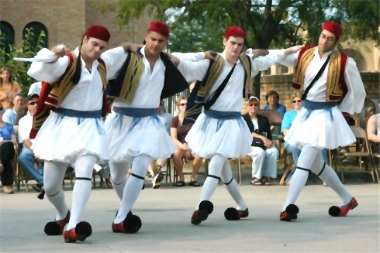
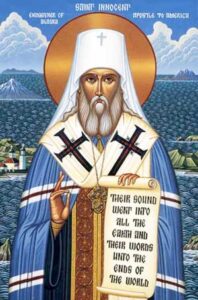
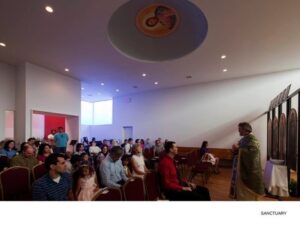

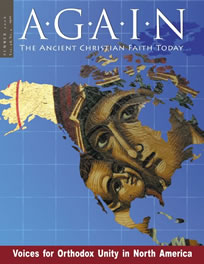


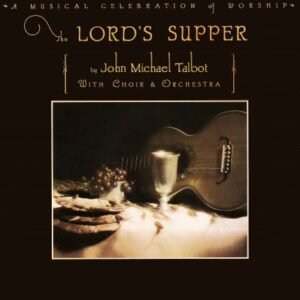
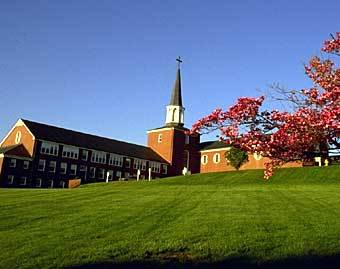
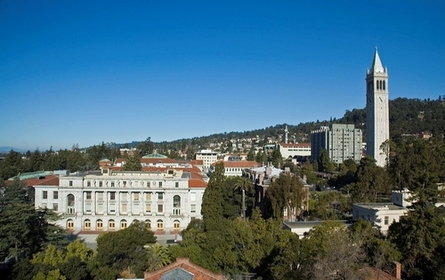
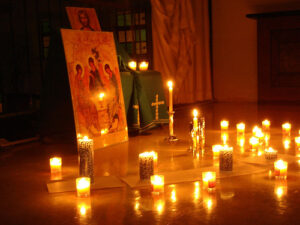



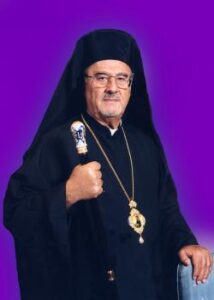
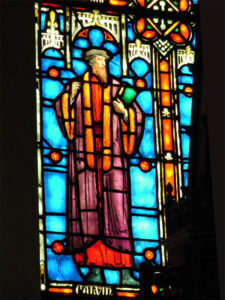

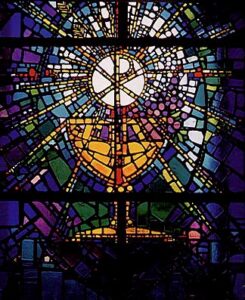
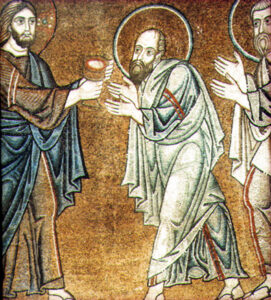
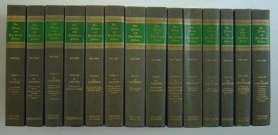
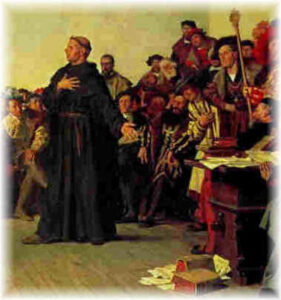
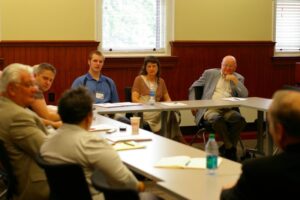

Recent Comments